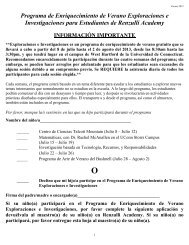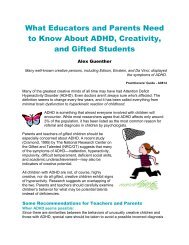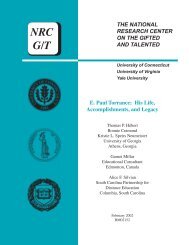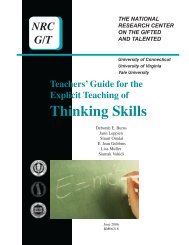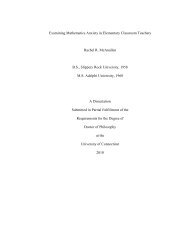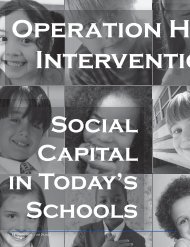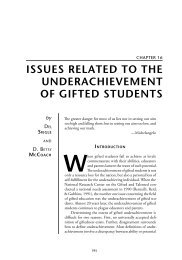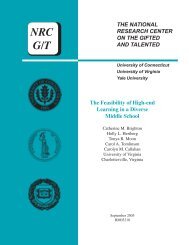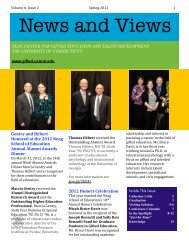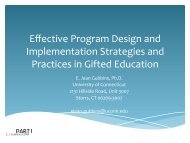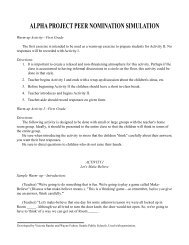Giftedness and High School Dropouts - Neag Center for Gifted ...
Giftedness and High School Dropouts - Neag Center for Gifted ...
Giftedness and High School Dropouts - Neag Center for Gifted ...
Create successful ePaper yourself
Turn your PDF publications into a flip-book with our unique Google optimized e-Paper software.
44<br />
have more involvement with regard to their child's problems. Nelson (1985) suggested<br />
that schools should develop links with the community <strong>and</strong> work with organizations that<br />
can provide appropriate services.<br />
Significance <strong>and</strong> Limitations of the Study<br />
Previous research studies have found various factors that predict which students<br />
might drop out of high school. These studies have certain limitations. First, few research<br />
studies using a broad definition of gifted focused directly on the gifted students who<br />
dropped out of school. Most of the previous studies of gifted students who dropped out<br />
of school focused on the academically gifted students based on IQ scores. However, in<br />
the school setting, there are many talented students who are not included in this category<br />
but who are potentially at risk of dropping out of school. Because this study used an<br />
existing self-report survey, non-intellective factors such as motivation could not be<br />
addressed to the extent that we would have liked. However, using broad <strong>and</strong> flexible<br />
criteria, this study obtained general characteristics of gifted students who dropped out of<br />
school.<br />
A second limitation of previous studies is related to the generalization issue.<br />
Previous research studies used data that represented specific regions or schools. As the<br />
literature indicated, because school quality <strong>and</strong> personal background such as SES <strong>and</strong><br />
ethnicity affect students' dropping out of school, national data should be used to obtain a<br />
more precise picture of high school students' drop out behavior. Using nationally<br />
representative longitudinal data, this study obtained comprehensive in<strong>for</strong>mation about<br />
gifted students who dropped out of school, not to determine the number of them, but to<br />
try to underst<strong>and</strong> <strong>and</strong> help them to continue their education.<br />
One limitation that should be noted is that only students who participated in all<br />
four rounds of the data survey were selected as a sample, thereby reducing the sample<br />
size. The number of participants in NELS:88 third follow-up was far fewer than that of<br />
other years because it is difficult to follow up with students after they leave high school.<br />
In addition, there were many missing data points on the specific variables. For example,<br />
several variables such as self-concept, GPA, <strong>and</strong> st<strong>and</strong>ardized test scores were excluded<br />
in the data analysis in Study 2 because of missing data on the gifted dropouts' site. In the<br />
case of GPA <strong>and</strong> st<strong>and</strong>ardized test scores, many data on gifted dropouts were not<br />
available because they dropped out be<strong>for</strong>e or in the 12th grade. It is not clear why more<br />
gifted students who dropped out of school have missing data on the self-concept variable<br />
than do gifted students who completed school. Although literature suggested that these<br />
variables are related to the decision to drop out, it is inappropriate to include these<br />
variables in this study because of the number of missing data points.




